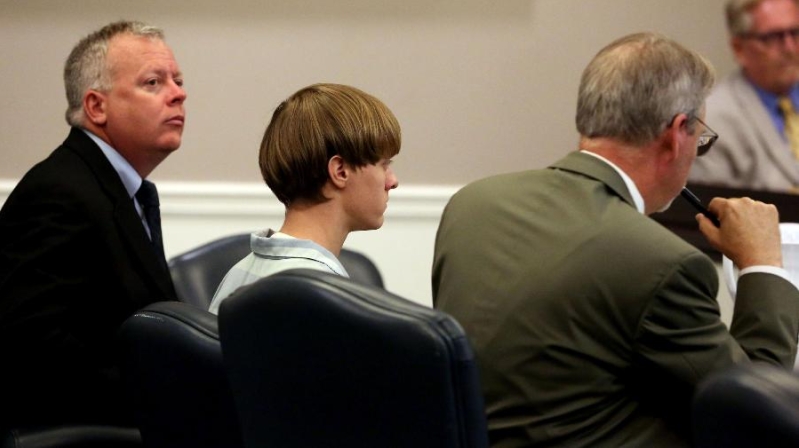
Dylann Roof, the 22-year-old white man accused of fatally shooting nine black parishioners at a S.C. church during June 2015 was allowed Monday to act as his own attorney in his death penalty trial, which may include him questioning survivors of the attack and relatives of those who died during the incident.
For background, read The Gospel Herald coverage: Church Shootings: Accused 'Hate Crimer' Dylann Roof Found Competent for Trial
Roof's decision to represent himself comes months after he offered to plead guilty in exchange for the promise of life in prison, according to The Associated Press. Federal prosecutors refused to drop the death penalty in the slayings at Emanuel African Methodist Episcopal Church in Charleston.
Until this week, Roof had been represented by one of the nation's most respected capital defenders.
Pro se representation can lead to uncomfortable courtroom encounters between defendants and their victims or those victims' families, warn legal spokespeople. Just hours after his arrest, some of the victims' relatives attended Roof's initial court appearance and said they forgave him and would pray for him. If he continues as his own lawyer, Roof could end up questioning those same family members in court.
In approving Roof's request to act as his own lawyer, U.S. District Judge Richard Gergel also appointed his defense team to stay on as standby counsel, available for advice and assistance throughout the trial. That team includes celebrated anti-death penalty attorney David Bruck.
During the juror qualification, Roof sat at the defense table occasionally conferring with Bruck. He registered few objections to jurors, agreeing with Gergel about a man's statements that the crime being in a church made it more worrisome to him and also saying a woman's death penalty views made her a good juror. Otherwise, Roof sat in his chair, sometimes looking at papers spread out before him, reports AP.
Beginning Monday, 20 potential jurors per day are reporting to the courthouse for individual questioning by the judge. When 70 qualified jurors are picked, strikes can be used to dismiss those they don't want, until 12 jurors and six alternates are seated.






